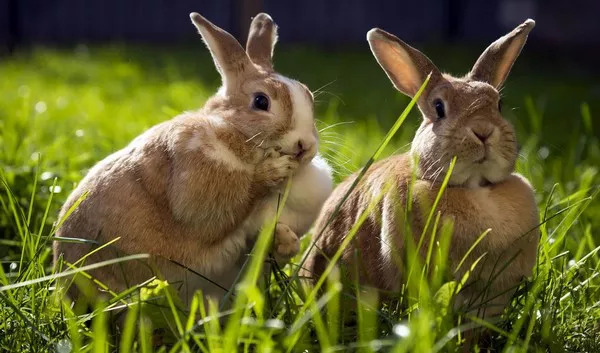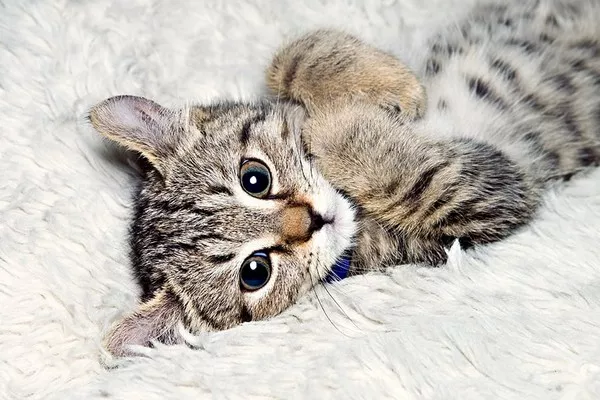Rabbits are delightful pets, cherished for their gentle nature and adorable appearance. Ensuring they receive a healthy and balanced diet is essential for their well-being and longevity. Many rabbit owners ponder the possibility of growing their own rabbit food as a sustainable and economical alternative to store-bought options. In this comprehensive guide, we will explore the feasibility of growing rabbit food, the types of plants that are suitable, and the steps you need to take to create a successful rabbit garden.
Benefits of Growing Your Own Rabbit Food
Economic Advantages
Growing your own rabbit food can significantly reduce the cost of feeding your pets. Commercial rabbit food and fresh produce can be expensive, especially if you have multiple rabbits. By cultivating your own vegetables, herbs, and greens, you can save money in the long run. The initial investment in seeds, soil, and gardening tools can quickly pay off as your garden begins to yield a continuous supply of fresh produce.
Environmental Impact
Home gardening is an eco-friendly practice that reduces your carbon footprint. By growing your own rabbit food, you minimize the need for transportation and packaging associated with store-bought produce. Additionally, you have control over the use of pesticides and fertilizers, allowing you to adopt organic gardening practices that are safer for both your rabbits and the environment.
Nutritional Control
One of the most significant benefits of growing your own rabbit food is the ability to ensure the nutritional quality of what your rabbits consume. Store-bought produce can sometimes contain harmful chemicals or lack the freshness needed for optimal nutrition. By growing your own, you can provide your rabbits with the freshest, most nutritious food possible.
Bonding and Enrichment
Gardening can be a therapeutic and enriching activity for rabbit owners. It offers an opportunity to bond with your pets as they explore and interact with the garden. Additionally, providing homegrown food can be a source of enrichment for rabbits, stimulating their natural foraging behaviors and contributing to their mental well-being.
Suitable Plants for Rabbit Food
Leafy Greens
Leafy greens are a staple in a rabbit’s diet, providing essential vitamins and minerals. Some of the best greens to grow for your rabbits include:
Kale
Kale is rich in vitamins A, C, and K, as well as calcium. It is relatively easy to grow and can thrive in various climates. However, it should be fed in moderation due to its high calcium content.
Romaine Lettuce
Romaine lettuce is a safe and nutritious option for rabbits. It is low in oxalic acid and provides hydration due to its high water content. Avoid feeding iceberg lettuce, as it lacks nutritional value and can cause digestive issues.
Spinach
Spinach is another nutritious green, rich in iron and calcium. However, it should be offered sparingly due to its oxalate content, which can contribute to kidney stones in rabbits if consumed in large quantities.
Vegetables
Vegetables add variety to a rabbit’s diet and can be grown easily in a home garden. Some suitable options include:
Carrots
Carrots are a favorite treat for many rabbits. Both the root and the greens are edible, but the root should be given in moderation due to its high sugar content.
Bell Peppers
Bell peppers are rich in vitamins A and C and provide a crunchy texture that rabbits enjoy. They come in various colors, each offering slightly different nutritional benefits.
Zucchini
Zucchini is a versatile vegetable that is easy to grow and provides hydration due to its high water content. It is low in calories and can be fed regularly.
Herbs
Herbs can enhance the flavor of your rabbit’s diet and offer additional health benefits. Consider growing:
Parsley
Parsley is a nutritious herb high in vitamins C and K. It can aid in digestion and freshen your rabbit’s breath.
Basil
Basil is rich in antioxidants and can help boost your rabbit’s immune system. It is easy to grow in warm climates or indoors with sufficient light.
Mint
Mint can aid in digestion and has a pleasant aroma that rabbits find appealing. It is a hardy herb that can thrive in various conditions.
Flowers
Certain flowers are safe and nutritious for rabbits. They can add color to your garden and variety to your rabbit’s diet.
Marigolds
Marigolds are edible flowers that are high in antioxidants and can help repel pests in your garden.
Nasturtiums
Nasturtiums are rich in vitamin C and have a peppery taste that rabbits enjoy. They are also known for their pest-repellent properties.
Dandelions
Dandelions are a nutritious wildflower that rabbits can eat in their entirety. They are high in vitamins A and C and provide numerous health benefits.
Setting Up Your Rabbit Garden
Planning and Preparation
Choosing a Location
Select a sunny spot in your yard that receives at least six hours of direct sunlight daily. Ensure the area has good drainage to prevent waterlogging, which can damage plant roots.
Soil Preparation
Rabbits need food that is free from harmful chemicals. Use organic soil and compost to enrich the planting area. Test the soil’s pH level to ensure it is suitable for the plants you intend to grow.
See Also: How Much Do You Feed a Flemish Giant Rabbit?
Garden Design
Consider creating raised beds or containers if you have limited space. Raised beds can improve drainage and soil quality, making them ideal for growing vegetables and herbs.
Planting and Maintenance
Starting Seeds
Start your seeds indoors in small pots or seed trays to give them a head start before transplanting them to the garden. Use a high-quality, organic seed-starting mix to ensure healthy seedlings.
Watering
Regular watering is crucial for the growth of your plants. Water the garden early in the morning to reduce evaporation and prevent fungal diseases. Use a soaker hose or drip irrigation system to deliver water directly to the roots.
Pest Control
Implement organic pest control methods to protect your plants. Companion planting, using beneficial insects, and applying natural repellents can help keep pests at bay without harming your rabbits.
Harvesting
Timing
Harvest your plants at their peak for maximum nutritional value. Leafy greens can be harvested continuously by picking the outer leaves, allowing the plant to continue growing.
Storage
Store harvested produce in a cool, dry place or refrigerate it to maintain freshness. Avoid washing vegetables until you are ready to feed them to your rabbits to prevent moisture-related spoilage.
Potential Challenges and Solutions
Climate and Weather
Different plants have varying climate requirements. Research the specific needs of the plants you wish to grow and choose varieties that are well-suited to your local climate. Consider using greenhouses or cold frames to extend the growing season and protect plants from extreme weather.
See Also: What to Feed a Baby Rabbit Without a Mother?
Soil Quality
Maintaining healthy soil is crucial for a successful garden. Regularly add organic compost and mulch to improve soil structure and fertility. Conduct soil tests periodically to monitor nutrient levels and pH balance.
Pests and Diseases
Pests and diseases can pose significant challenges to home gardeners. Implementing preventive measures, such as crop rotation, intercropping, and using disease-resistant plant varieties, can help mitigate these issues. Promptly remove and destroy any infected plants to prevent the spread of diseases.
Time and Effort
Gardening requires time, effort, and dedication. Be prepared to invest in regular maintenance tasks, such as weeding, watering, and pest control. Creating a gardening schedule can help you stay organized and ensure your plants receive consistent care.
Conclusion
Growing your own rabbit food is a rewarding endeavor that offers numerous benefits for both you and your furry friends. By cultivating a variety of leafy greens, vegetables, herbs, and flowers, you can provide your rabbits with a nutritious, fresh, and safe diet. While there are challenges associated with home gardening, proper planning, and dedication can lead to a thriving rabbit garden. Embrace the journey of sustainable living and enjoy the satisfaction of knowing exactly what goes into your rabbits’ food.
Related Topics:

























